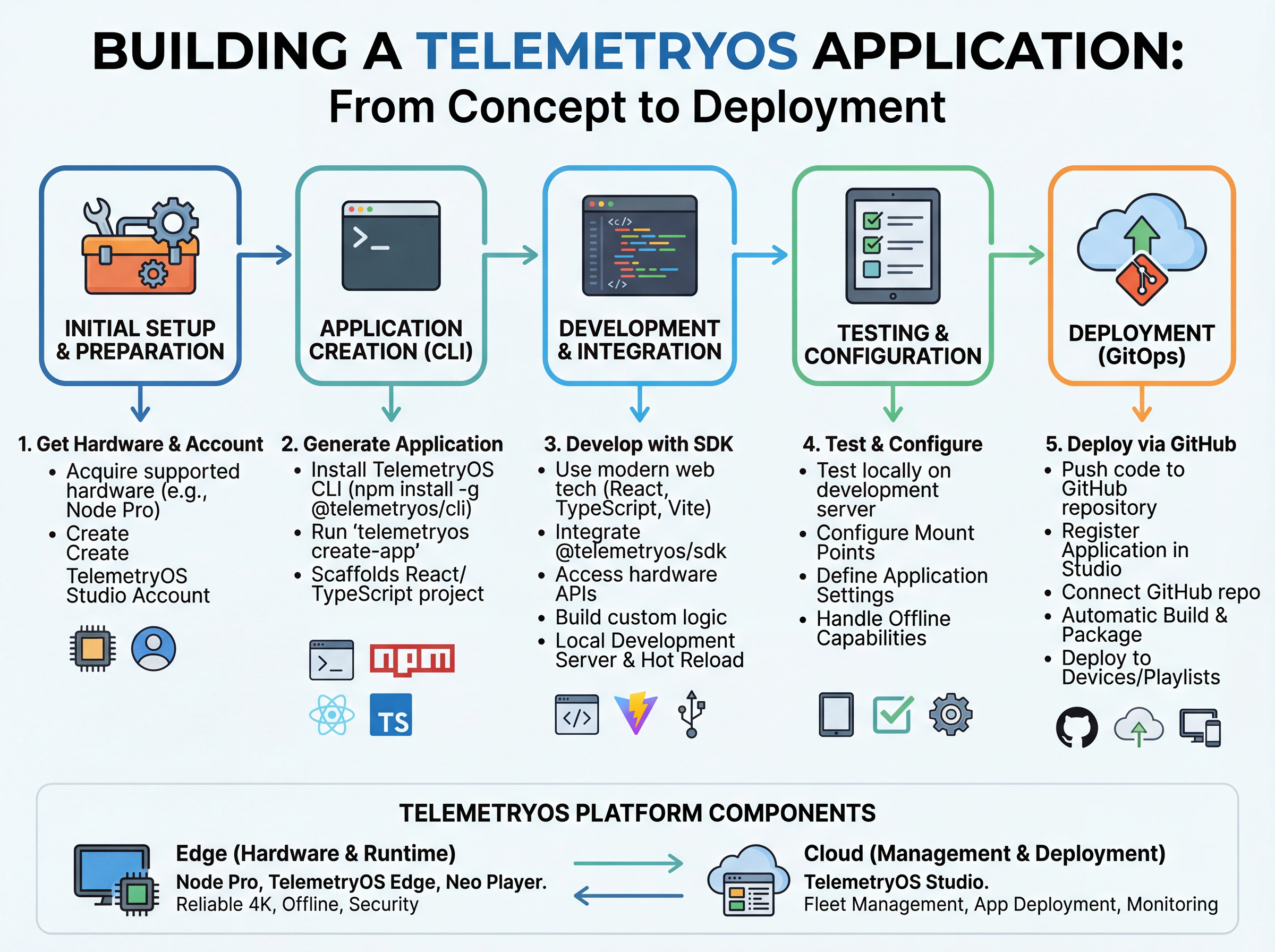Building Applications
Develop custom applications for TelemetryOS using the SDK and API documentation
Building Applications for TelemetryOS
TelemetryOS applications are standard web applications — built with React, TypeScript, HTML, and CSS — that run on devices and displays managed by the TelemetryOS platform. The TelemetryOS SDK gives those applications access to device hardware, persistent storage, media libraries, and fleet-wide deployment, all through familiar JavaScript APIs.
If you can build a web app, you can build a TelemetryOS application. The platform handles the rest: building from your Git repository, distributing to devices, managing versions, and keeping content running offline.

Where to Start
Quick Start
Install the CLI, scaffold a project, and start developing in seconds:
npm install -g @telemetryos/cli
tos init my-app
cd my-app
tos serveThe CLI generates a React + TypeScript + Vite project pre-configured with the TelemetryOS SDK. The development server simulates the device runtime so you can build and test locally before deploying.
When the application is ready, push to GitHub and register it in Studio. TelemetryOS builds the code, packages it, and distributes it to devices automatically. Updates propagate fleet-wide in minutes, with built-in version control and instant rollback.
For a step-by-step walkthrough, see Quick Start.
Updated about 1 hour ago